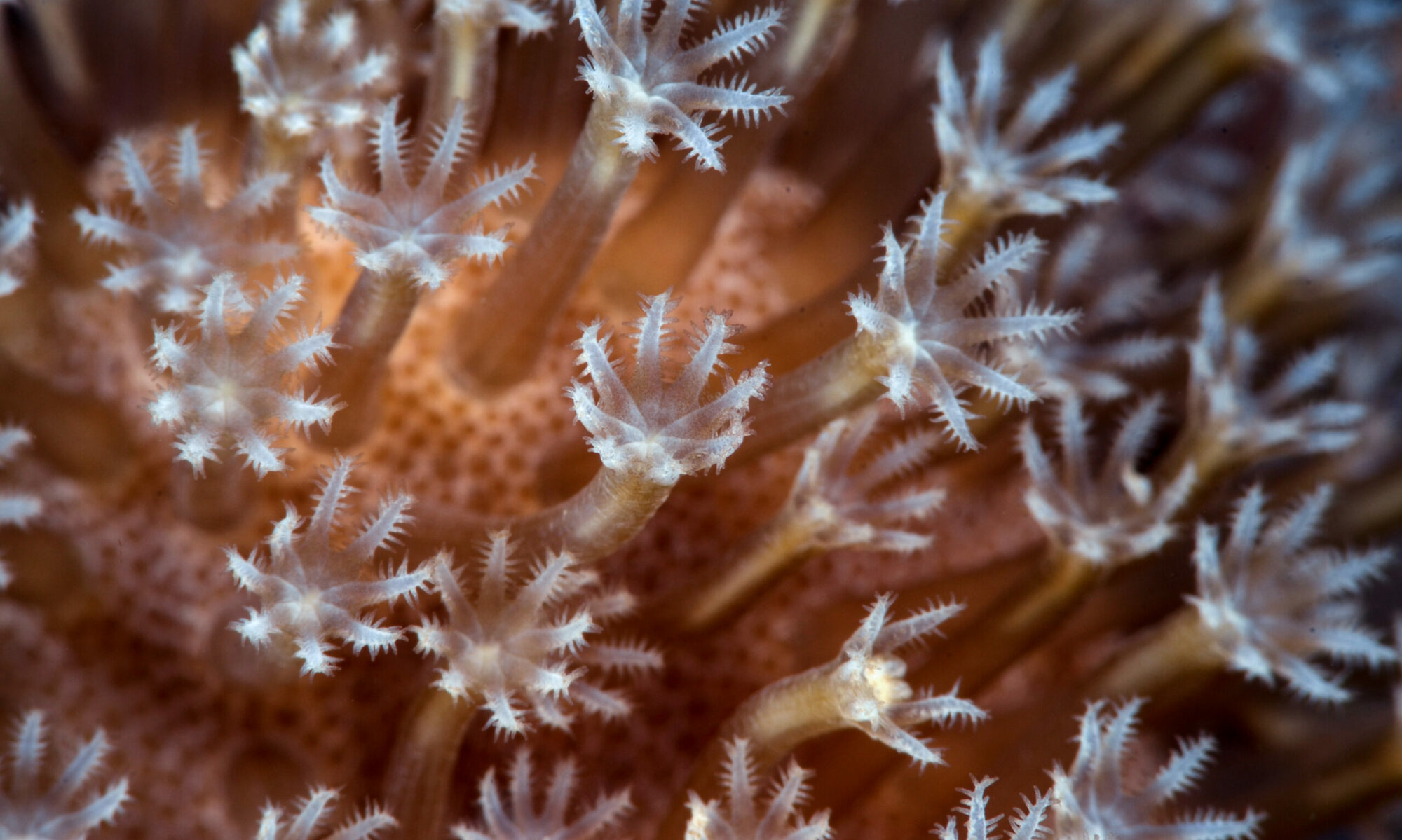




This year, Guam NSF EPSCoR welcomed six new members of its Graduate Research Assistantship program. Over the next three years, these graduate students will receive mentorship, training, and fieldwork experience as they pursue their master’s degree.
Grace Jackson
Having grown up in a small beach town in Southern California, Grace Jackson has lived her life surrounded by water.
“This instilled in me the love for the ocean and later my scientific curiosity,” said Jackson. “I applied to this program to increase my scientific proficiency where I could learn about a different ecosystem and culture that I have not experienced before. I am so glad to be a part of this program.”
Under the guidance of Tom Schils, Ph.D., Jackson will study crustose coralline red algae, specifically of the genus Lithophyllum.
CCRA is a group of marine seaweeds that deposits limestone like stony corals. They serve several important ecological functions on reefs, such as building and cementing reefs together or serving as the preferred settlement substrates for coral larvae, which then further develop into adult colonies.
Lauren Kallen
Lauren Kallen applied to the Guam NSF EPSCoR GRA program due to the benefits and support that the program provides to its students. Kallen was born and raised in Illinois and earned her bachelor’s degree in marine biology at the University of California, Santa Cruz.
Kallen’s advisor is Sarah Lemer, Ph.D., whose work focuses on the study of marine invertebrates. Over the course of the program, Kallen will conduct research on Drupella snails, carnivorous marine snails that feed on coral. Her research will focus on outbreaks of these snails on coral reefs because in high densities, these snails can quickly decimate a reef.
“I am very excited and grateful to be in this program, it is an amazing opportunity. I am very interested in outreach and giving back to the beautiful community in Guam,” said Kallen.
Garret O’Donnell
While looking for potential graduate programs, Garret O’Donnell found out about the Guam NSF EPSCoR program through his mentors from the University of Florida.
Under the guidance of David Combosch, Ph.D., O’Donnell will study Leptoria, a genus of brain coral. O’Donnell said that he is interested in Leptoria’s population genetics, spawning behavior, and abiotic stress responses to factors such as heat and low oxygen.
Since coming to Guam, O’Donnell said that he appreciates the UOG Marine Laboratory community.
“I think everyone there has been super welcoming and super cohesive as a unit and that’s been really cool to see,” said O’Donnell. “Everyone seems to know what everybody else is doing and that’s not something you always see in science. A lot of the time, labs are kind of isolated from each other. I like to see that there’s a lot of camaraderie amongst the students and the faculty.”
Andrew O’Neill
Throughout his life, Andrew O’Neill found a love for the ocean. As he pursued his undergraduate degree at the University of California, Santa Cruz, he wanted to specialize in ecology and conservation. Once he learned about the Guam NSF EPSCoR GRA program, he saw it as a unique opportunity to do research and help the environment.
During the program, O’Neill will be advised by Atsushi Fujimura, Ph.D., and plans to focus on research the effects of sedimentation on Guam’s reef fish assemblages.
“In my first semester here, I did some instructing with some of the undergraduate biology sections and through that, I learned the Guam has a huge sedimentation problem,” said O’Neill. “Lots of silt gets washed away from all the rains and the rivers and flows down to the coastal waters. I want to figure out what would be the worst-case scenario if we don’t fix this problem.”
Xavier De Ramos
Knowing that he wanted to find ways to help the island, De Ramos earned a bachelor’s degree in marine biology at the University of Hawai’i, Manoa.
“Towards the halfway point of my time in college, I started thinking about Guam – my home,” said De Ramos. “I remember having a lasting impression after I went snorkeling and I was just blown away about what I saw down there. That got me thinking about what kind of issues Guam is facing or if there was anything I could do to contribute to research regarding its coral reefs.”
De Ramos will be advised by Ciemon Caballes, Ph.D., whose research focuses on ecophysiology as well as coral and echinoderm ecology.
“I feel very excited about learning more through this program and my graduate courses because I want to give back to the island,” said De Ramos. “At the end of the day, giving back to the island is all that matters to me.”


